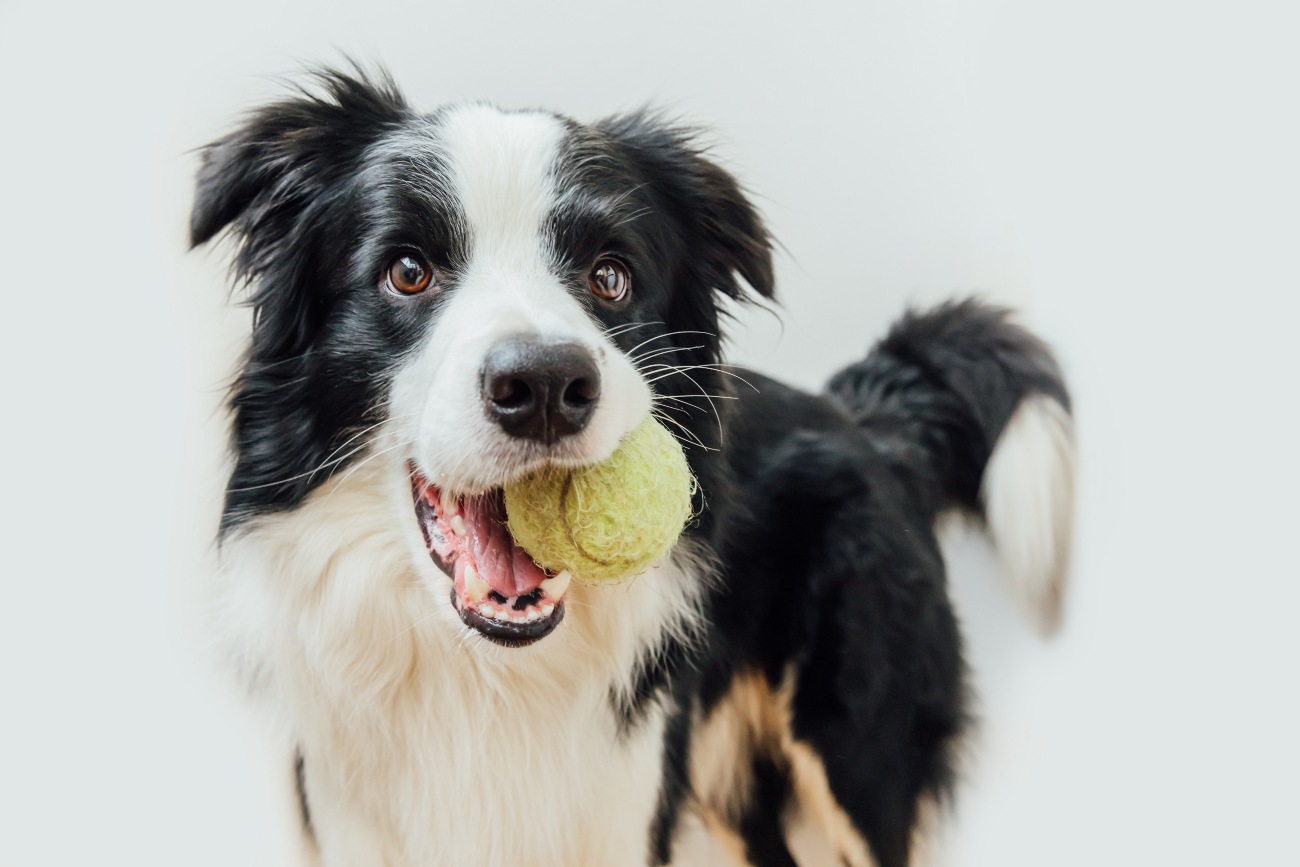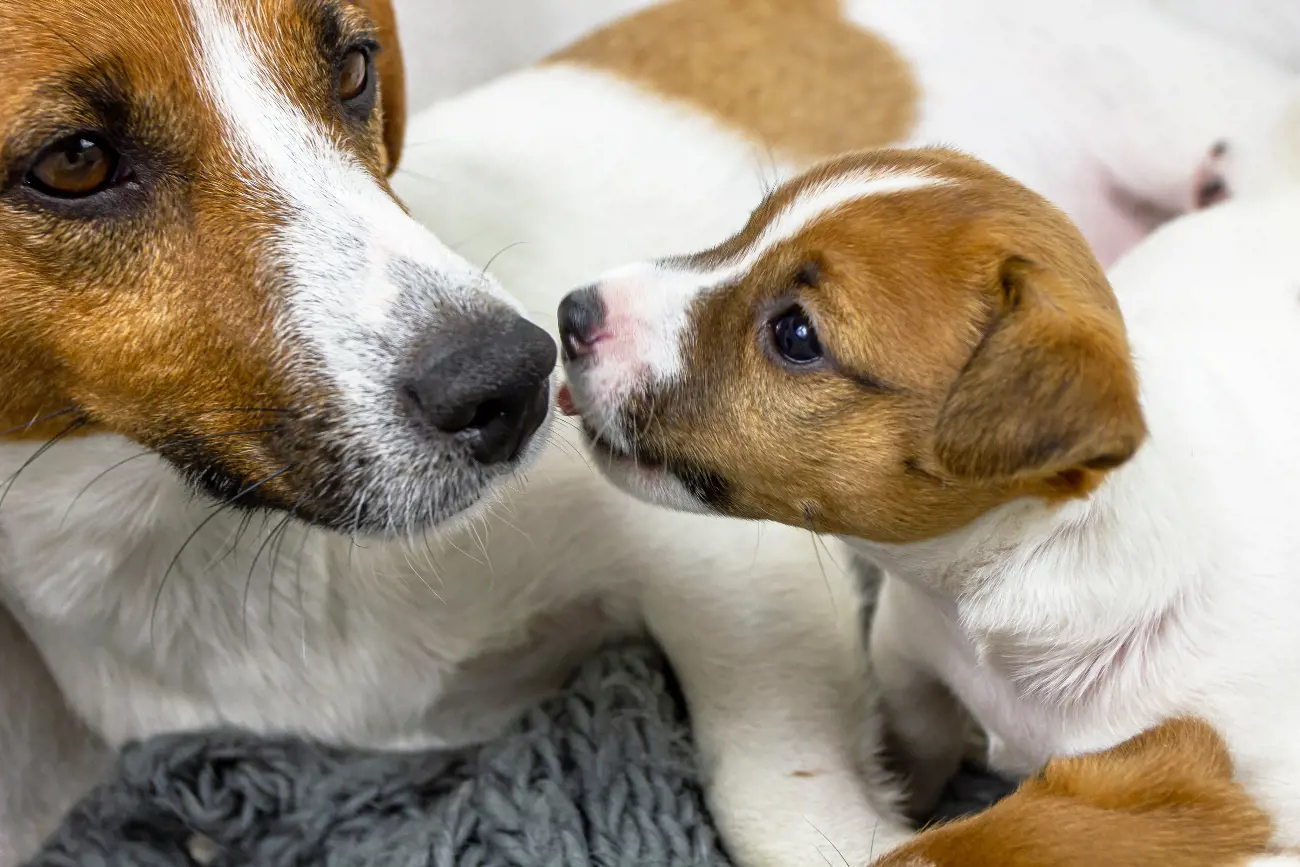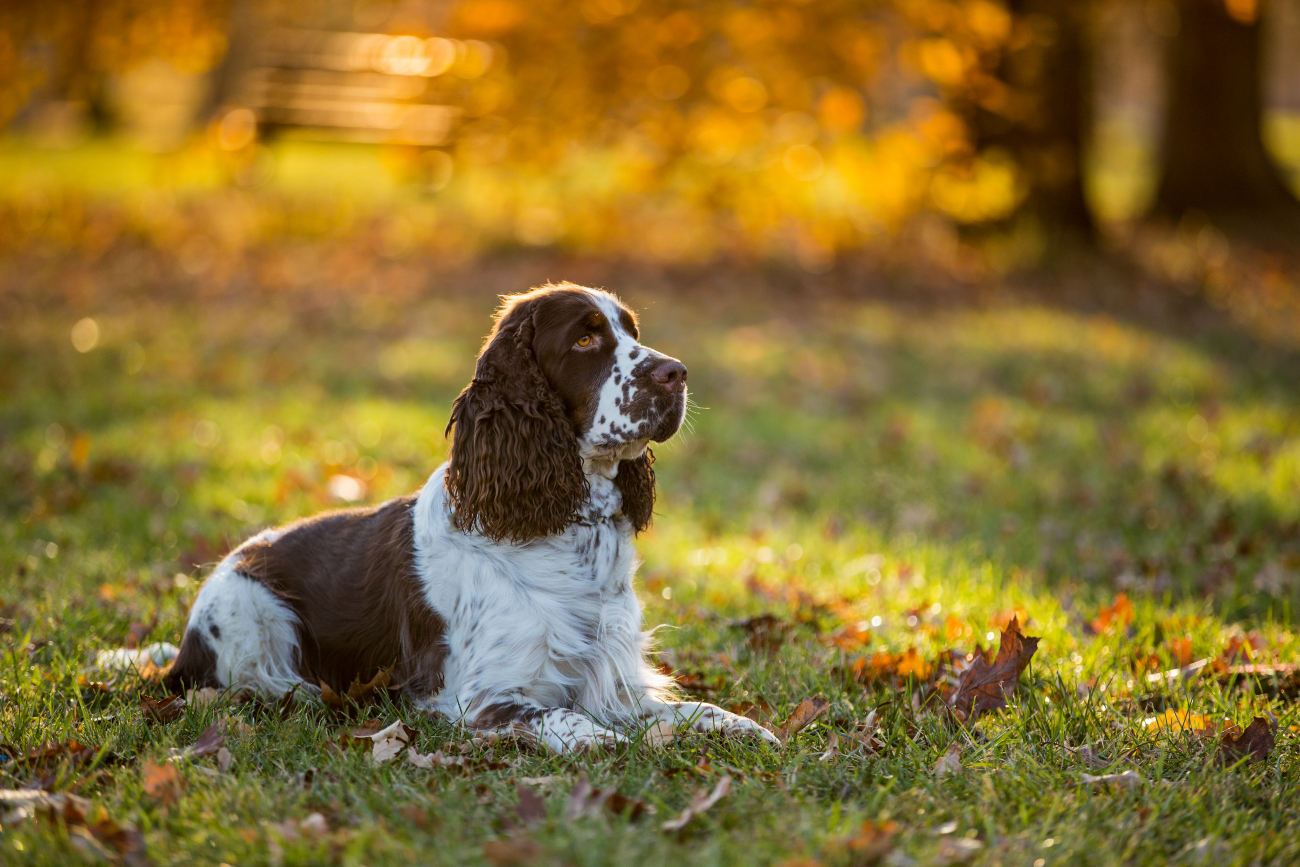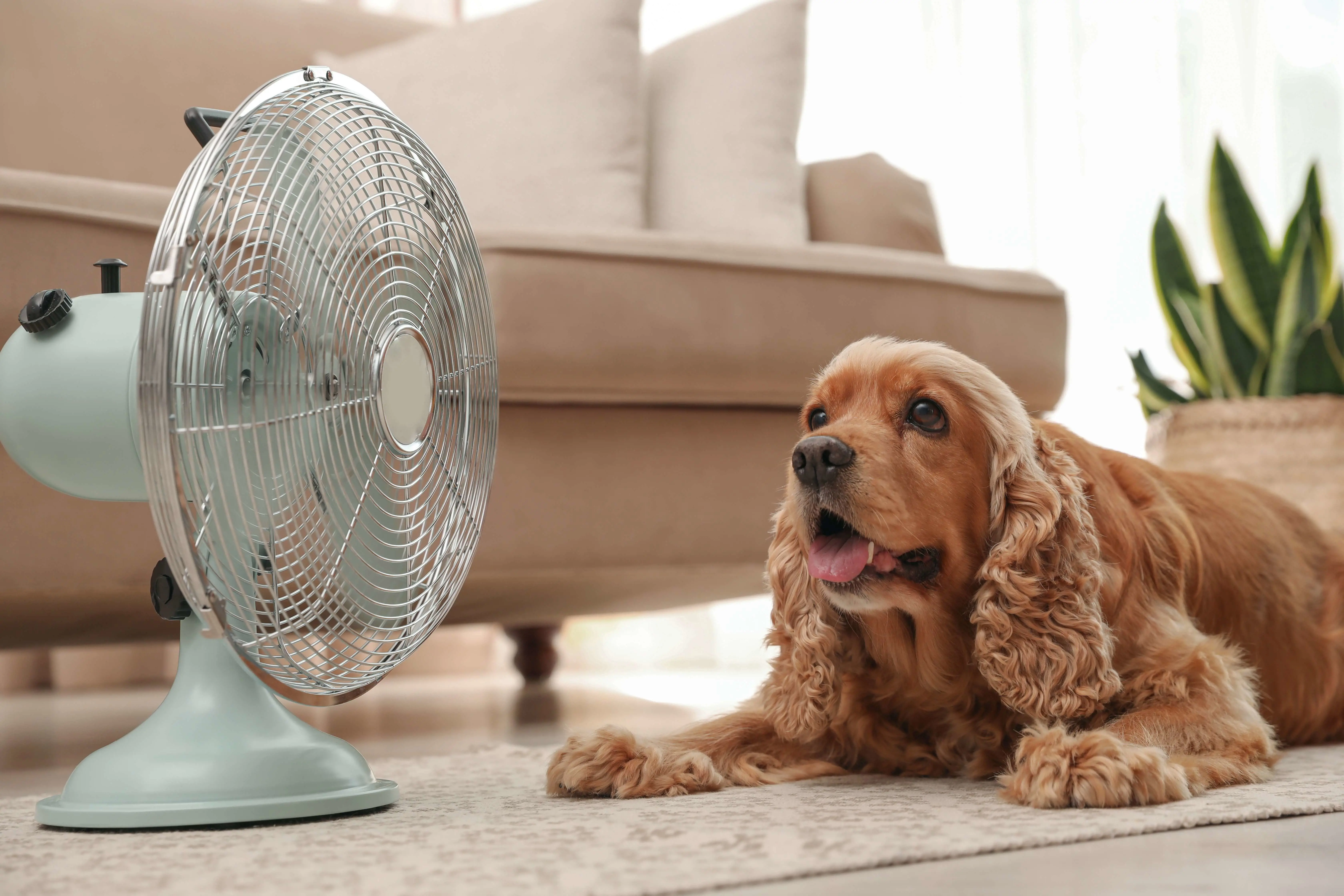Can dogs eat broccoli and other vegetables? A simple yes/no list
14th November, 2023
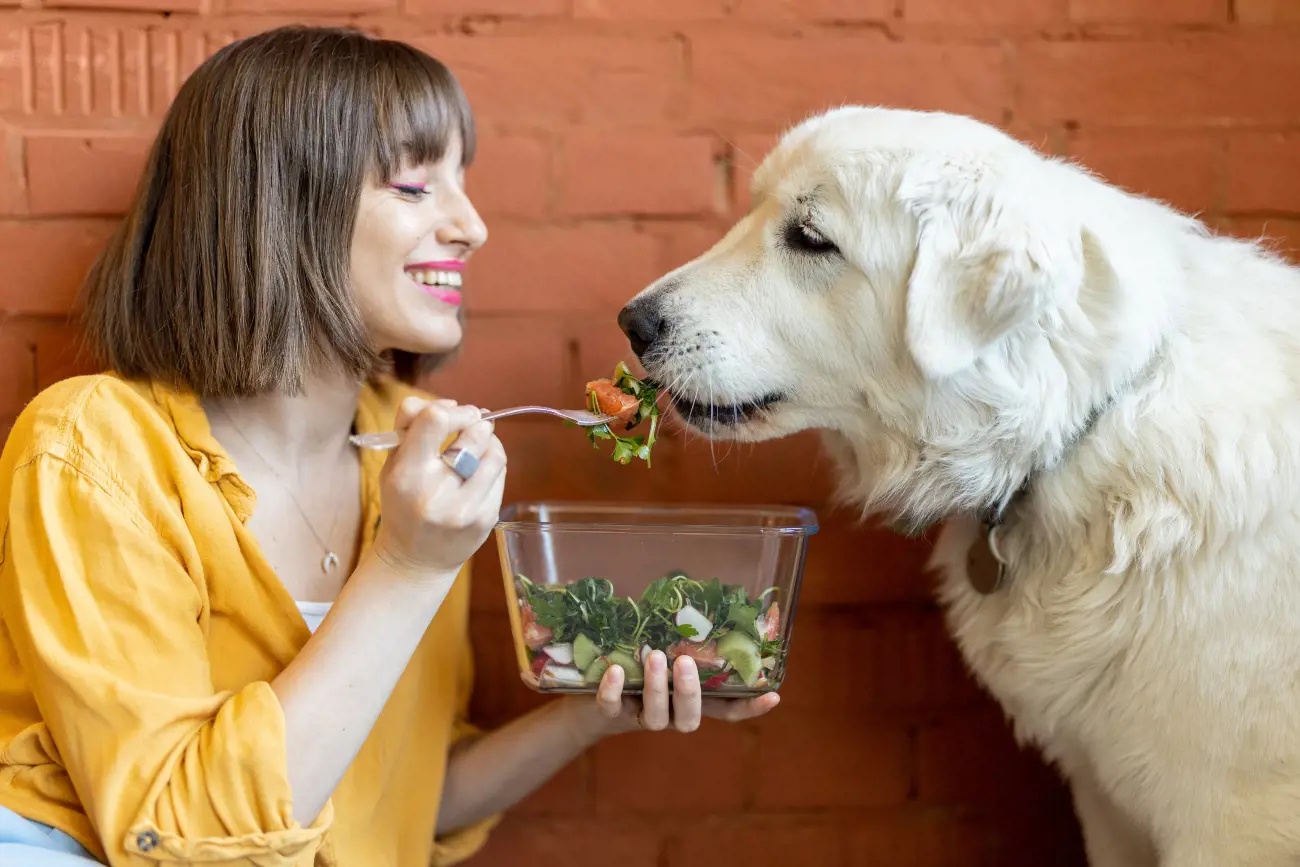
As loving pet parents, we're constantly seeking ways to keep our furry companions healthy, happy, and thriving.
One question that often crosses our minds is, "Can dogs eat broccoli and other vegetables?" It's no secret that these nutritious greens do wonders for our bodies, but can they provide the same benefits for our canine friends?
In this guide of do's and don'ts, we delve into the world of canine nutrition, exploring the pros and cons of incorporating vegetables like broccoli, cabbage, and parsnips into their diet.
We'll also uncover which vegetables are safe for your dog to consume, and which ones should be avoided.
So, join us on this flavourful journey as we help you make informed decisions about your dog's meal plan, ensuring they remain strong, active, and nourished throughout their lifetime.
Can dogs eat broccoli?
If you've been wondering, "Can dogs eat broccoli?" The answer is yes, but with some precautions.
Broccoli can be a healthy and nutrient-rich treat for your furry friend, packed with vitamins, antioxidants, fibre, vitamin C, while also being (obviously) low in fat.
However, moderation is the key here.
Too much broccoli can cause digestive upset (broccoli contains isothiocyanates, which can cause gastric irritation in some dogs if consumed in large quantities.), so it's best to only offer small amounts as an occasional treat.
Always make sure to cook the broccoli well and cut it into small pieces to avoid choking hazards.
Remember, every dog is different, so make sure to monitor your pet's reaction and consult with your vet if you have any concerns! You can learn more about healthy dog treats through our useful guide.
Benefits of broccoli for dogs
While dogs don't need large amounts of fruits and vegetables to maintain a healthy lifestyle, certain ones like broccoli can provide health benefits when given as occasional treats. Broccoli also provides the following benefits:
- High amounts of fibre
- Rich in vitamin C
- Low in fat
Hazards of broccoli for dogs
Despite its health benefits, broccoli also contains a potentially harmful ingredient called isothiocyanates.
This can cause mild to severe gastro intestinal irritation (otherwise known as an upset stomach) in some dogs if consumed in larger quantities.
To avoid this risk, keep the amount of broccoli in your dog's diet to less than 25% of it's total meal.
Anything more than this amount can be considered toxic, so a very small amount (around 10%. To help to get an accurate figure and avoid giving your dog too much broccoli, you can weigh yoour dog's meal and make sure the broccoli serving is around 10% of his/her's meal).
Tips for feeding broccoli to your dog
When feeding broccoli to your dog, keep the following tips in mind:
- Serve in small amounts (around 10% of total meal)
- Raw or cooked is fine, but avoid adding any seasonings or oils
- Cut broccoli into bite-sized pieces to prevent choking hazards
Can dogs eat cauliflower?
Yes, they certainly can! Cauliflower is a nutritious vegetable that is not only safe for dogs to consume in small quantities, but also provides numerous health benefits.
Cauliflower is packed with vitamins, minerals, and antioxidants that promote a strong immune system and overall well-being. So, the next time you're chopping up some cauliflower for your meal, feel free to share a few small bites with your four-legged companion. Just remember that moderation is key, as too much cauliflower can lead to an upset stomach!
Benefits of cauliflower for dogs
Cauliflower is brimming with vital nutrients and minerals that contribute to your canine's overall well-being. A few advantages of cauliflower for dogs can include:
- Rich in vitamin C, which supports a healthy immune system
- High in fiber, which aids in digestion
- Contains antioxidants that can contribute to preventing diseases
Tips for feeding cauliflower to your dog
When feeding cauliflower to your dog, follow these tips:
- Cook or steam the cauliflower to make it more digestible
- Cut it into bite-sized pieces before feeding to avoid choking
- Feed in moderation to avoid gastrointestinal issues
Can dogs eat cabbage?
Yes, dogs can eat cabbage, but it should be given in moderation. Cabbage is a healthy vegetable that offers various nutrients for your dog, but it can also cause gas and digestive discomfort in some dogs. If you have recently got a puppy, check out our useful guide on preparing your puppy for winter.
Benefits of cabbage for dogs
Cabbage offers numerous health benefits for dogs, including:
- Rich in vitamins K and C, which support bone health and immune function
- High in fiber, promoting healthy digestion
- Contains antioxidants that help fight off diseases
Tips for feeding cabbage to your dog
To safely feed cabbage to your dog, keep these tips in mind:
- Cook the cabbage to make it more digestible and reduce the risk of gas
- Chop into smaller pieces to avoid choking
- Feed in moderation to prevent digestive issues
Can dogs eat parsnips?
Yes, dogs can eat parsnips. This root vegetable is a healthy treat for dogs, offering a range of essential nutrients.
Benefits of parsnips for dogs
Parsnips provide several health benefits for dogs, such as:
- High in fiber, which promotes healthy digestion
- Rich in vitamins B6 and C, to support your dog's immune system and overall health
- Contains potassium and manganese, which support muscle and bone health
Tips for feeding parsnips to your dog
When feeding parsnips to your dog, follow these tips:
- Cook or steam the parsnips to make them more digestible
- Prevent choking by cutting into smaller pieces
- Feed in moderation to avoid stomach problems
Can dogs eat green beans as well?
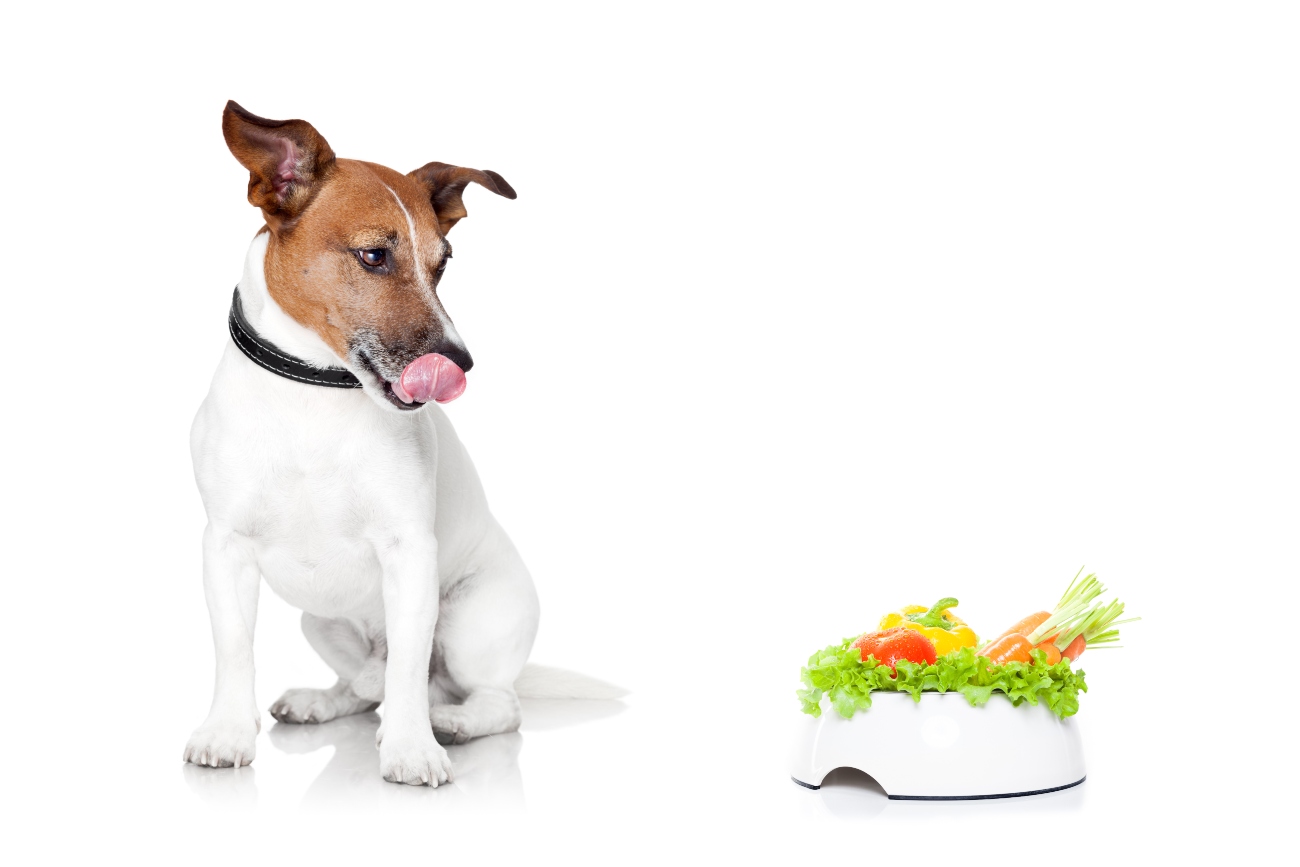
Are you wondering, "Can dogs eat green beans?" Well, you're in luck because the answer is a resounding yes!
Green beans are not only safe for your furry friend to consume in small portions, but they also provide a variety of health benefits.
Packed with essential vitamins and minerals like Vitamin C, Vitamin K, and manganese, green beans can help support your dog's immune system and overall health.
Additionally, their high fiber content can aid in digestion and weight management (too much can lead to digestive problems, so keep an eye on how much your dog is eating!).
So, don't hesitate to share a small handful of these nutritious veggies with your pup as a healthy treat or even mix them into their regular meals. Just make sure to serve them plain, without any added salt or seasoning. If you're interested in supporting your dog even further, check out our dog training guide here.
Benefits of green beans for dogs
- High in fiber, which aids in digestion
- Rich in vitamins A, C, and K. This is particularly good for a healthy immune system.
- Low in calories, making them a great treat for a weight management programme
Tips for feeding green beans to your dog
When feeding green beans to your dog, keep these tips in mind:
- Serve either raw or cooked, avoid oils and seasoning
- Smaller pieces are better to avoid choking
- Feed in moderation to avoid gastrointestinal issues
Can dogs eat sweetcorn?
Dogs can eat sweetcorn, but in small amounts. While sweetcorn is not toxic to dogs, it can pose a choking hazard if fed improperly.
Benefits of sweetcorn for dogs
Sweetcorn can offer several health benefits for dogs when given in moderation:
- High in fiber, which aids in digestion
- Contains vitamins B and C, which support immune function and overall health
- Provides a source of energy due to its carbohydrate content
Tips for feeding sweetcorn to your dog
To safely feed sweetcorn to your dog, follow these tips:
- Remove the corn kernels from the cob before feeding to prevent choking hazards
- Serve either cooked or raw, but avoid adding seasonings or oils
- Small portions to avoid stomach issues - make sure you're not overloading your dog with too many vegetables and monitor
Can dogs eat onion and garlic?
The simple answer is no; dogs should not consume onion and garlic. Both onions and garlic belong to the Allium family, which contains compounds called organosulfides that can be toxic to dogs.
Consumption of these substances can lead to hemolytic anemia, a condition where red blood cells break down faster than they can be replaced.
Early symptoms of onion and garlic toxicity in dogs include:
- Vomiting
- Diarrhoea
- Weakness
- Lethargy
In severe cases, it may result in organ damage or even death.
Can dogs eat grapes and raisins?
Although not technically vegetables, they are often grouped with them because they are plant-based. Grapes and raisins are highly toxic to dogs, and their consumption can lead to severe health complications, such as kidney failure and even death.
Although the exact reason for their toxicity remains unknown, it is crucial for pet owners to keep these fruits out of your dogs' reach at all times.
To get a dog insurance quote for your furry friend you can get a quote through our website by clicking here. If you would like to talk to one of our dog insurance specialists, you can get in touch with us on 0330 102 5748.
Can dogs eat avocado?
Although the pit and skin of an avocado can pose a choking hazard and contain persin, a toxic substance, the avocado flesh is generally considered safe for dogs to consume in small quantities.
However, it is important to note that in certain instances it may cause vomiting and diarrhoea in dogs depending on the amount that they consume.
Can dogs eat raw potato?
While cooked potatoes are safe in moderation, raw potatoes are not a recommended food for dogs. This is due to their high levels of solanine, a toxic compound found in uncooked potatoes. This substance can cause:
- Gastrointestinal distress
- Vomiting
- Diarrhoea
If consumed in large amounts, it may lead to more severe symptoms, such as:
- Seizures
- Paralysis
Can dogs eat rhubarb?
Dogs should not consume rhubarb. Ingesting rhubarb, particularly the leaves, can pose a significant health risk to dogs due to the presence of oxalic acid, which can cause symptoms such as:
- Drooling
- Vomiting
- Diarrhoea
- Kidney failure (in severe cases)
Can dogs eat wild mushrooms?
Dogs should not consume wild mushrooms, as many varieties can be toxic and cause severe health issues including:
- Liver damage
- Kidney damage
- Vomiting
- Organ failure
Can dogs eat green tomatoes?
While ripe red tomatoes are safe in small amounts, green tomatoes can pose potential health risks for dogs due to their solanine content, a toxic substance found in the unripe fruit. While some dogs may not show immediate adverse effects after consuming green tomatoes, it is crucial to be cautious and avoid feeding them to your pet.
Ingesting large amounts of green tomatoes may lead to:
- Gastrointestinal issues
- Weakness
- Lethargy
- Other more severe symptoms
So, can my dog eat broccoli & veg in general?
In answer to the question "Can dogs eat broccoli?", the answer is yes, along with other vegetables such as cauliflower, cabbage, parsnips, green beans, and sweetcorn. However, they must avoid vegetables like onions, garlic, raw potato, and wild mushrooms at all costs.
There is no end to the number of questions you might have about your dog's diet, so we hope this guide was helpful! While dogs can eat just about any vegetable, it's important to decide which ones work best for your pet and to stick to their favorites.
While some vegetables can be harmful to your pet, others are safe, but may require some preparation before being served. Since every dog is different, make sure to pay close attention to your pet's reaction while you're feeding them, and always consult with your vet if you have any concerns.
Helpful Pages
Recent Posts
Pet Insurance Quote
- 98% claims paid *
- Claims paid directly to vets
- 24/7 vet video consultations
- Interest free monthly payments

